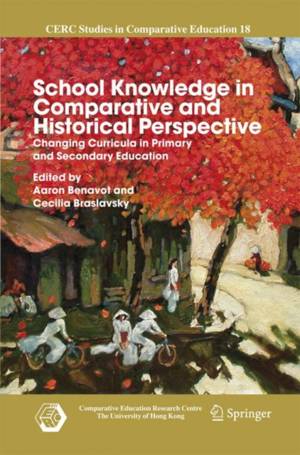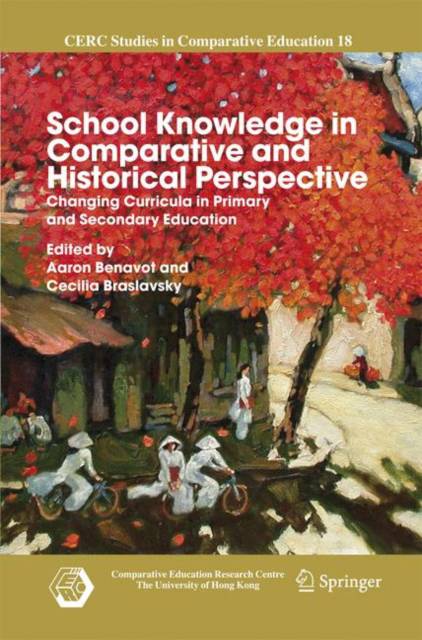
- Retrait gratuit dans votre magasin Club
- 7.000.000 titres dans notre catalogue
- Payer en toute sécurité
- Toujours un magasin près de chez vous
- Retrait gratuit dans votre magasin Club
- 7.000.0000 titres dans notre catalogue
- Payer en toute sécurité
- Toujours un magasin près de chez vous
School Knowledge in Comparative and Historical Perspective
Changing Curricula in Primary and Secondary Education
Description
School curricula are established not only to prepare young people for a real world, but also to beckon an imagined one anchored in individual rights and collective progress. Both worlds--the real and the imagined--increasingly reflect influential trans-national forces.
In this special edited volume, scholars with diverse backgrounds and conceptual frameworks explore how economic, political, social and ideological forces impact on school curricula over time and place. In providing regional and global perspectives on curricular policies, practices and reforms, the authors move beyond the conventional notion that school contents reflect principally national priorities and subject-based interests. Some authors emphasize a convergence to standardized global curricular structures and discourses. Others suggest that changes regarding the intended contents of primary and secondary school curricula reveal regional or trans-cultural influences. Overall, these comparative and historical studies demonstrate that the dynamics of curriculum-making and curricular reform are increasingly forged within wider regional, cross-regional and global contexts.
Spécifications
Parties prenantes
- Editeur:
Contenu
- Nombre de pages :
- 306
- Langue:
- Anglais
- Collection :
- Tome:
- n° 18
Caractéristiques
- EAN:
- 9781402057359
- Date de parution :
- 28-06-07
- Format:
- Livre relié
- Format numérique:
- Genaaid
- Dimensions :
- 156 mm x 234 mm
- Poids :
- 644 g

Les avis
Nous publions uniquement les avis qui respectent les conditions requises. Consultez nos conditions pour les avis.





